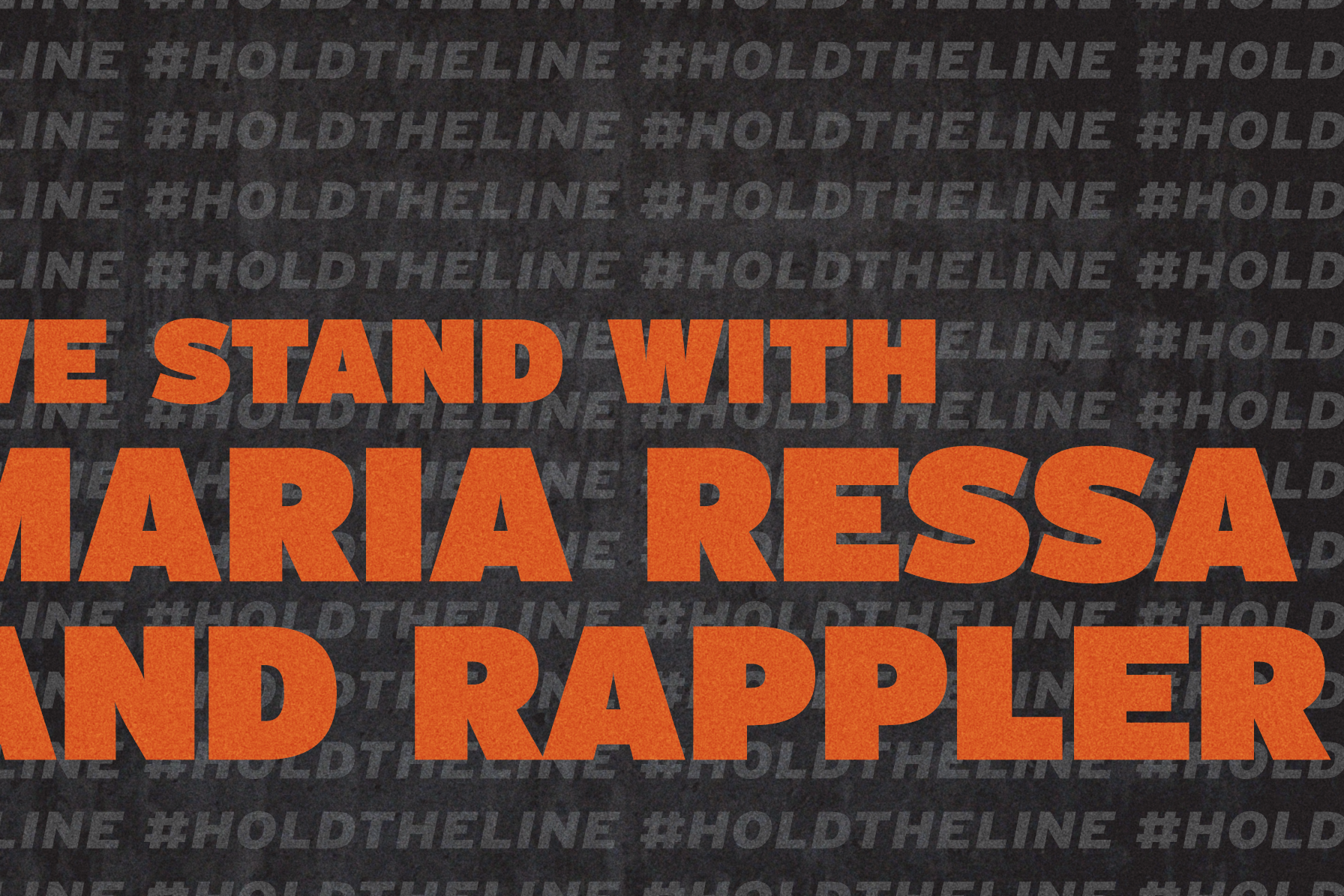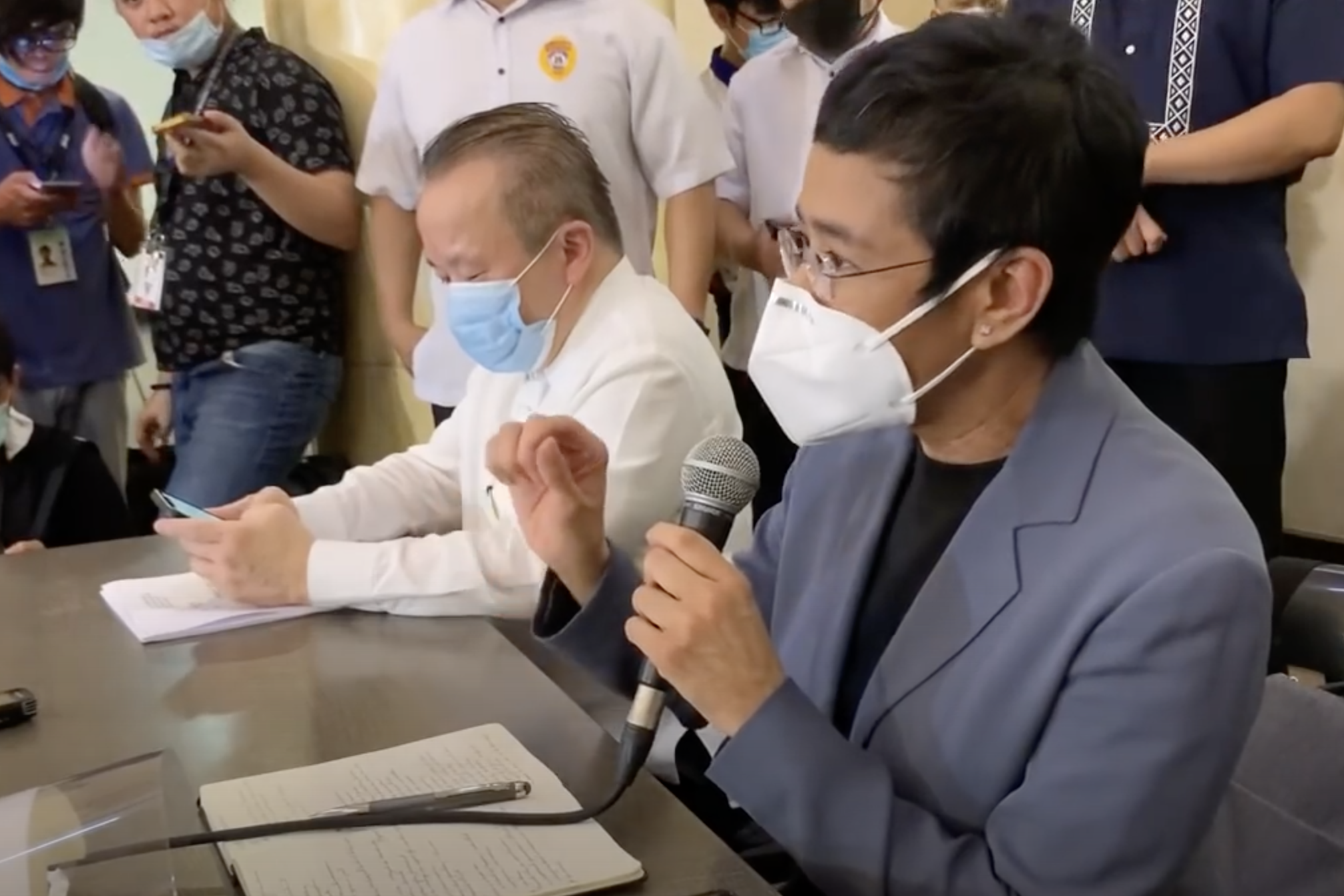As Maria Ressa and Rappler face charges for their journalism and broadcasting network ABS-CBN remains off-air, the recently enacted Anti-Terror law sends yet another stark warning that press freedom and democracy in the Philippines remain under threat.
Since their conviction for cyber libel in June over an article exposing alleged malpractices and corruption by businessman Wilfredo Keng, Rappler CEO Maria Ressa and her colleague, Santos Junior, have appealed against the conviction with a motion for the case to be partially reconsidered. But on 24 July, Manila judge Rainelda Estacio-Montesa denied the motion and upheld the cyber libel conviction, for which Ressa and Santos Junior could face up to six years in prison. The plaintiff, Keng, has also filed a second cyber libel case against Ressa.
Among the other legal cases that Ressa is grappling with – which, if found guilty on all charges, could see the CEO and journalist imprisoned for close-to 100 years – includes tax evasion. Last month, Ressa pleaded “not guilty” to the charge of failing to pay taxes following the sale of Philippine Depository Receipts (PDRs) to foreign investors in 2015. The journalist described the charges as “politically motivated, it is meant to harass and to intimidate… The best response to it is to keep reporting.”
Ressa: What happened to ABS-CBN can happen to all of us. Journalists, we have to hold power to account…. We need to continue to demand accountability.
— Rappler (@rapplerdotcom) July 22, 2020
Ressa also cited the widely condemned fate of ABS-CBN, the Philippines’ largest broadcaster that was ordered by the National Telecommunications Commission (NTC) to shut down in May when its franchise licence expired. She said, “what happened to ABS-CBN can happen to all of us. Journalists, we have to hold power to account…. We need to continue to demand accountability.”
Both Rappler and ABS-CBN are well-known for their critical reporting of President Duterte and his war on drugs campaign. Following the overwhelming vote in the House Committee on Legislative Franchises against renewing ABS-CBN’s franchise on 10 July, the broadcaster has remained off-air. ABS-CBN confirmed that it is “now forced” to begin implementing a retrenchment programme, which will take effect on 31 August. Some of its business operations will cease along with the layoff of employees – the number of which has not yet been confirmed. In a statement, the broadcaster said: “The loss of their jobs comes at a time when the uncertain and perilous impact of the COVID-19 pandemic further makes our decision truly difficult, but inevitable.”
Fortunately, not all is lost for those who rely on ABS-CBN as a vital source of news and information. The broadcaster announced that it will continue to operate on digital and cable platforms, which do not require a legislative franchise. Meanwhile, as the country remains under lockdown during the COVID-19 pandemic, it will offer the use of its transmission network “to broadcast educational programmes all over the country”, while also making its own education programmes available.
The Anti-Terror Act
The introduction of the Anti-Terrorism Act of 2020 has also heightened concerns for press freedom and freedom of expression in the Philippines.
The law, which came into effect on 18 July, allows for suspects to be arrested without a warrant and imprisoned for weeks at a time. If found guilty, suspects could also face life imprisonment. It has been likened to the recently imposed National Security Law implemented in Hong Kong due to its vague definitions of what constitutes a crime and for the severity of its consequences. Some reports suggest that this latest tactic to silence dissent mirrors attacks on the media last seen when martial law was declared during the regime of President Ferdinand Marcos.
Human rights and press freedom advocates at home and overseas have filed petitions with the Supreme Court to reject the law and declare it unconstitutional. In a statement, the International Federation of Journalists (IFJ) voiced its concerns saying: “The repressive anti-terrorism law in the Philippines grants authorities unfettered power to detain activists and journalists without consideration for the essential role of the media to protect democracy and free expression.”
Show your support
The Public Media Alliance has joined a coalition of over 70 media, civil society and advocacy organisations to support the #HoldTheLine campaign in support of Maria Ressa, Rappler and other independent media under attack in the Philippines.
Find out more and show your support by following the link below.
Header Image: Black and white noise on a TV sreen with no signal, also called TV snow. Credit: axstokes/istock
Related Posts
9th July 2020
#HoldTheLine campaign launched in support of Maria Ressa and independent media in the Philippines
Sixty press freedom groups and civil…
15th June 2020
Conviction of Maria Ressa is a further attack on press freedom in the Philippines
The Public Media Alliance condemns the…
2nd June 2020
Independent journalism and access to information threatened in the Philippines with the closure of ABS-CBN
Advocates of free press and expression…


